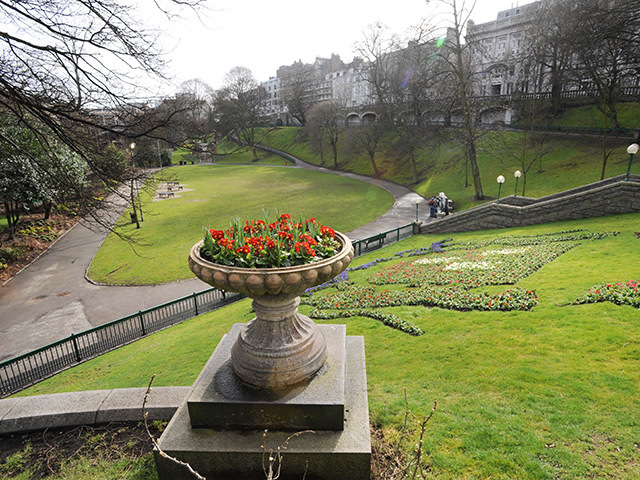
Apologies in advance but I’ve come over all parochial and am going to discuss Aberdeen itself. I’ve spent the best part of 40 years either working out of or in the place and have watched it evolve into what it is now.
Indeed, when I started working here, the A90 was a single lane road, the airport terminal was on the east side of the field by the railway station and flights to London still used some propeller aircraft.
I also seem to remember Aberdeen harbour still had a lock gate which we had to wait to open before venturing out into the North Sea. This meant more time in the pub so it didn’t cause too much hardship.
Things have, of course, changed a great deal since then. From wondering what on earth had hit it in the early 70s, Aberdeen has certainly gained confidence and stature and nowadays even calls itself the “Energy Capital of Europe”, having previously claimed the title “Oil & Gas Capital of Europe”.
Whether or not that’s deserved is a moot point.
During the run up to the decision on whether or not to redevelop Aberdeen’s Union Terrace gardens I clearly remember Ian Wood claiming that the redevelopment would help turn the city into “the Houston of the East”.
I didn’t laugh – well not for long – at such a suggestion because, while Wood must have realised that such a goal was impossible; when I thought about it I realised he was actually quite correct in that it is what Aberdeen should be aiming for. But does its recent history suggest that’s “doable” or not?
In the last month or so there has been a flurry of media praising Aberdeen’s success in doing so well out of the oil and gas industry with one broadcaster talking about “Aberdeen’s central role in the North Sea oil industry”.
It’s an interesting turn of phrase. Aberdeen certainly has played a central role in that it has acted as host to the vast majority of oil and gas operators, service companies and manufacturers.
Nearly all the important players are here in one shape or another. They’ve created jobs, spent money in our shops and had a huge – some would say negative – impact on our housing market.
They’ve also kept our car sales people happy and filled our over-priced restaurants almost every night of the week. Our hotels, bed and breakfast providers are booming and shops and supermarkets are mostly thriving.
The airport is constantly busy with both domestic and international flights as well as all those helicopter trips offshore.
On some levels then Aberdeen has been a huge success but something niggles me about how deep and well-rooted that success actually is.
Fact is that if it hadn’t been for firstly the Americans then the Norwegians and to some extent the French and others including the Danes, Italians, Dutch, Swedes and others Aberdeen would have been nothing like as buoyant as it has been.
The city then is like the oil and gas industry itself in that it’s certainly international. However, it also means that because of oil and gas its economy is nothing like broad enough; that’s acknowledged.
A narrow economy brings big risks. Firstly, any downturn in oil and gas, regardless of what it’s caused by can have a large adverse impact on this city-region’s economy.
Secondly, companies can up sticks and move out at any time. Anchoring companies here is critical and because Aberdeen is a source of great engineering and other skills this is a major factor in our favour when it comes to deciding on where to invest. That said, it doesn’t always work like that. Witness Technip’s decision to establish an R&D centre in Paris and not Aberdeen where it has a major operations base.
R&D operations are, of course, another essential element when it comes to anchoring companies anywhere. Where they’re based tells us a lot about where a company’s loyalties really lie.
So what to do?
Well, I’m not first one to have talked about the need to broaden Aberdeen’s economy as much as we need to diversify the entire country’s economy and I’m sure I won’t be the last.
However, the time is now ripe to start developing a sensible strategy to actually do this; drawing on the skills we have where possible but recognising we may need to develop or “import” others.
I had always hoped that ACSEF (Aberdeen City and Shire Economic Forum) would drive this forward but frankly, that organisation is turning out to be about as much use as the proverbial chocolate teapot.
For example, I’m still staggered that while it has a plan to develop a “Hydrogen Highway” as part of the “Energetica” global energy technology corridor, stretching from Aberdeen to Peterhead, there is no clear plan to develop or even bring in a company to manufacture and trial hydrogen refuelling systems, fuel cells, electrolysers and so on and anchor that technology in Aberdeen for the future.
The same applies to ideas about geothermal energy.
ACSEF desperately needs someone to press its reset button and revitalise it.
Wood’s aspiration to turn Aberdeen into another Houston is possible only perhaps on a smaller scale. Houston has major aerospace and electronics sectors – Aberdeen is very good at electronics. Houston has a major medical science sector; as it happens both universities here are very adept at medical science and medical devices. Houston also has a powerful petro-chemical sector. I never have understood why Aberdeen doesn’t.
Of course, being a forward looking city Houston is attracting renewable energy companies to base themselves there as well and companies offering wind technology and low power LED lighting are typical of the ones that have moved in or set up already.
Ian Wood will be surprised to read this but I agree with him. Aberdeen has to emulate Houston and it has to start now.
Recommended for you
